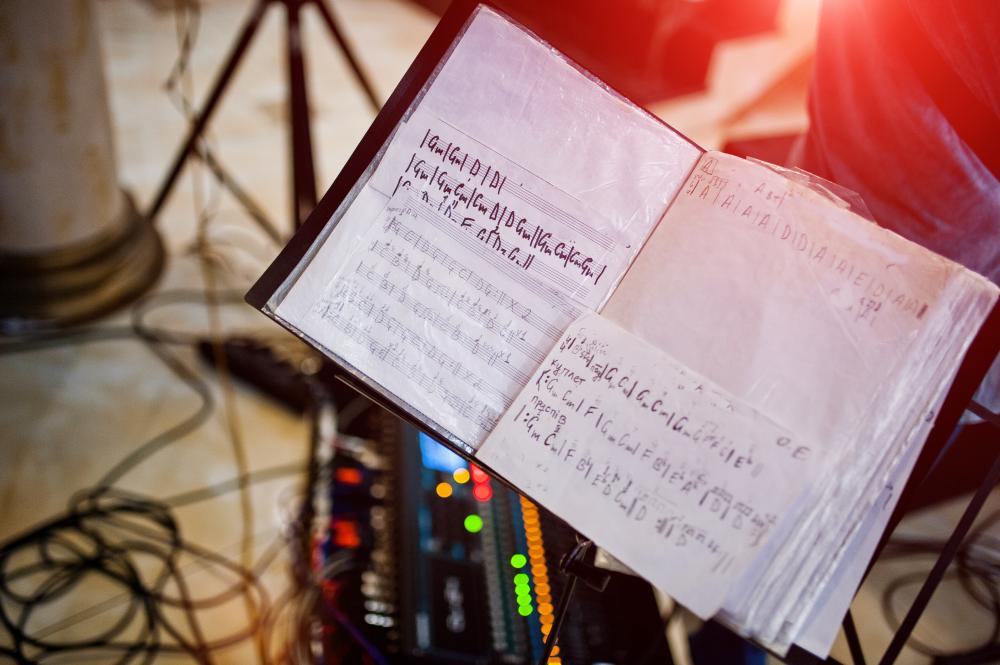
Introduction to Writing Television Music
At MusicU, we understand the unique challenges and opportunities that come with writing television music. This creative endeavor requires not just musical talent, but an understanding of storytelling, adaptability, and a keen sense of timing. Whether you’re just starting out or looking to refine your skills, our insights and experiences aim to guide you through the intricacies of creating music that enhances the television viewing experience.
Getting Started
Breaking into the Industry
Entering the world of television music composition might seem daunting at first. However, like any creative field, making connections and gaining real-world experience are key steps. Begin by leveraging local opportunities such as film festivals and networking events. These venues are often teeming with filmmakers and content creators in need of compelling scores. Additionally, consider internships at production houses or with established composers. Such positions offer invaluable on-the-job learning and could lead to your first gig.
Finding Your Unique Sound
While technical skills and industry connections are crucial, identifying and nurturing your unique musical voice sets you apart. This journey involves exploring various genres, experimenting with different instruments, and embracing both successes and failures as learning opportunities. At MusicU, we emphasize the importance of understanding your strengths and continuously pushing the boundaries of your creativity.
Crafting Your Television Score
Understanding the Narrative
Writing television music goes beyond creating pleasing melodies; it’s about supporting the narrative. This means closely working with directors and producers to grasp the storyline, characters, and emotional arcs. Effective communication and a bit of research into similar shows can provide clarity and inspiration, ensuring your music complements the visual storytelling.
Adapting to Various Genres
Television scores often require versatility, as projects may span multiple genres. One day, you might be crafting a haunting melody for a thriller, and the next, composing an upbeat tune for a sitcom. Embrace this diversity as an opportunity to expand your repertoire and skill set. Being well-versed in various musical styles makes you a valuable asset and opens more doors in the industry.
Technical Aspects of Composing
Technological advancements have transformed the landscape of music composition, offering a plethora of tools at your fingertips. Investing in quality software and understanding the basics of sound engineering can significantly elevate your music. Additionally, integrating real instruments with digital elements adds a layer of authenticity and can become a signature aspect of your style. MusicU provides resources on selecting the right equipment and software to best suit your creative process and budget.
Collaboration and Feedback
Collaboration is a cornerstone of writing television music. Being open to feedback from directors, producers, and even fellow composers is essential for growth and success. There will be times when your vision might not align with the project’s needs, and being adaptable is key. Learning to revise and sometimes completely rework your music based on constructive criticism is a valuable skill that comes with experience and an open mind.
Building a Portfolio
A diverse and impactful portfolio is your ticket to attracting more work and making a name for yourself in the competitive field of television music. Include a variety of genres and formats, showcasing your range and flexibility. MusicU encourages creating personal projects to fill gaps in your portfolio, allowing potential clients to envision how your music could enhance their projects.
Navigating the Business
Understanding Contracts and Rights
Navigating the legal aspects of the music industry can be complex. Familiarize yourself with common contract terms and copyright laws to protect your work and interests. This knowledge is crucial when negotiating deals and ensuring fair compensation for your creative contributions.
Marketing Your Music
In today’s digital age, marketing yourself effectively is just as important as your musical talent. Utilize social media, networking events, and online platforms to share your work and connect with potential clients. MusicU offers tips on building a strong online presence and leveraging digital tools to showcase your portfolio to a global audience.
Continuous Learning
The world of television music is ever-evolving, with new trends, technologies, and opportunities emerging regularly. Adopting a mindset of continuous learning and staying abreast of industry developments is key to staying relevant and innovative in your work. MusicU provides access to a wealth of knowledge, from industry news to cutting-edge techniques, ensuring our students are always ahead of the curve.
Writing television music is a multifaceted and rewarding career path that combines creativity, technical skill, and strategic thinking. At MusicU, we’re dedicated to supporting musicians at every stage of their journey, offering the tools, knowledge, and connections needed to thrive. By embracing continuous learning, staying adaptable, and building meaningful industry relationships, you can carve out a successful niche in the vibrant world of television music.
How do you write music for TV?
Writing music for TV is both a craft and a collaboration. It begins with understanding the show’s tone, characters, and narrative arcs. As composers at MusicU, we often start by discussing the vision with the creators, diving deep into the storyline to ensure our music complements the visual storytelling. Experimentation plays a significant role – blending various instruments, synthesizers, and digital tools to craft a unique sound that fits the scene’s emotions. It’s about striking a balance between your creative voice and the show’s requirements, often working under tight deadlines. And remember, every feedback is a stepping stone to refining your musical narrative. How do you think music influences your perception of a TV show?
How do I pitch my music to a TV show?
Pitching your music to a TV show requires a blend of research, networking, and showcasing your unique sound. At MusicU, we emphasize the importance of understanding the show’s musical needs and tailoring your pitch accordingly. A well-crafted email to the show’s music supervisor, including links to your most relevant work, can make a strong impression. Participating in industry events and film festivals also provides opportunities to connect directly with those in charge of music selection. Remember, persistence and professionalism go a long way. What strategies have you found most effective in pitching your music?
What does a TV composer do?
A TV composer is the creative force behind the music that underscores a television show’s narrative, setting the tone and enhancing the emotional impact of scenes. Our role involves closely collaborating with the show’s producers and directors to craft compositions that reflect the story’s mood and pace. This can range from creating thematic motifs for characters to producing incidental music that drives the plot. Beyond composition, we often manage the recording process, working with musicians and sound engineers to bring our scores to life. It’s a dynamic role that combines musical talent with storytelling. Have you ever noticed how music influences your favorite TV scenes?
How do TV shows get songs?
TV shows acquire songs through a combination of licensing existing tracks and commissioning original compositions. Licensing involves negotiating rights with artists, labels, or music publishers to use pre-released music, which can add recognizable appeal and emotional depth to scenes. In contrast, original compositions are tailored to fit specific moments within a show, offering a unique and cohesive sonic experience. At MusicU, we stress the importance of understanding copyright laws and building relationships with music supervisors to successfully place your music in TV productions. How much importance do you place on a show’s music selection?
Finding Your Unique Sound
Finding and nurturing your unique sound is a journey of self-discovery and experimentation. It involves exploring various musical genres, experimenting with different instruments, and constantly refining your compositions based on feedback and personal insights. At MusicU, we encourage embracing your musical identity while staying adaptable to different projects’ needs. Your unique sound is what sets you apart in the competitive landscape of television music composition. How do you approach the challenge of maintaining your musical identity while adapting to different projects?
Resources
- ASCAP – The American Society of Composers, Authors, and Publishers provides valuable information on music licensing, copyright, and royalties for composers.
- Berklee College of Music – Berklee offers online courses and resources for music composition, production, and business in the entertainment industry.
- The Recording Academy – The organization behind the Grammy Awards provides industry insights, educational resources, and networking opportunities for music professionals.
- Sound on Sound – A reputable source for music production techniques, gear reviews, and industry news to enhance your skills as a composer.
- SonicScoop – Offers online courses, articles, and resources on music production, mixing, and mastering to help you refine your craft.
